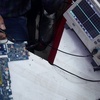Air conditioning (AC) systems have become an indispensable part of our daily lives, providing comfort in both residential and commercial spaces. With the increasing reliance on AC units, the demand for skilled professionals in AC repair has also risen. However, technicians must prioritize safety while performing repairs and maintenance. This article will delve into the essential safety protocols and best practices that should be covered in an AC Repairing Course to ensure the well-being of technicians and the longevity of the equipment.
Understanding the Basics
Before diving into safety protocols, a comprehensive AC repairing course should cover the fundamental principles of air conditioning systems. Technicians must have a solid understanding of refrigerants, electrical components, and the overall functioning of AC units. This knowledge lays the groundwork for safe and effective repair practices.
Personal Protective Equipment (PPE)
The first line of defense against potential hazards in AC repair is the use of proper Personal Protective Equipment (PPE). This includes safety goggles, gloves, steel-toed boots, and long-sleeved clothing to protect against electrical shocks, refrigerant exposure, and physical injuries. Emphasizing the importance of wearing PPE should be a central component of any AC Repairing Course.
Electrical Safety
AC systems involve intricate electrical components that pose significant risks if mishandled. AC repairing courses should cover electrical safety measures such as:
a. Power off: Always disconnect power sources before starting any repair work. This prevents electrical shocks and ensures the safety of the technician.
b. Lockout/tagout procedures: Teach technicians how to effectively lock out and tag out electrical sources to prevent accidental re-energization.
c. Voltage checks: Properly use voltage detectors to ensure that electrical components are de-energized before commencing repairs.
Refrigerant Handling
Refrigerants are crucial for the functioning of AC systems but can be hazardous if mishandled. AC Repairing Courses should focus on:
a. Proper refrigerant recovery: Technicians must be trained in the correct methods of recovering and recycling refrigerants, adhering to environmental regulations.
b. Leak detection: Teach techniques for detecting refrigerant leaks, emphasizing the importance of repairing leaks promptly to prevent environmental damage and health risks.
c. Ventilation: Ensure that repair areas are well-ventilated to prevent the buildup of potentially harmful refrigerant gases.
Proper Tools and Equipment Usage
Adequate training in the correct usage of tools and equipment is vital for the safety and efficiency of AC repairs. This includes proper handling of wrenches, screwdrivers, multimeters, and specialized AC tools. Technicians should be trained to inspect tools regularly for any signs of wear or damage and replace them as needed.
Systematic Troubleshooting:
AC Repairing Courses should impart systematic troubleshooting techniques to identify and diagnose issues accurately. This not only improves the efficiency of repairs but also minimizes the time spent exposed to potential hazards.
Conclusion:
In conclusion, a comprehensive AC Repairing Course should prioritize safety protocols and best practices to ensure the well-being of technicians and the successful repair of air conditioning systems. By combining theoretical knowledge with practical hands-on training, technicians will be better equipped to handle the complexities of AC repairs while minimizing risks and maintaining a safe working environment. Continuous education and reinforcement of these safety measures will contribute to a skilled and safety-conscious workforce in the field of AC repair.


No comments yet